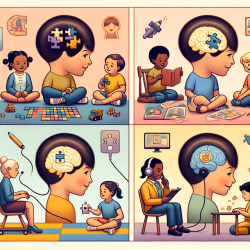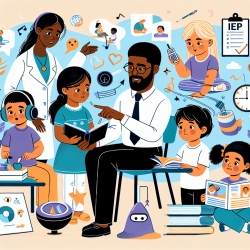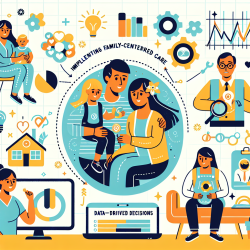Introduction
In the realm of online therapy services, especially those catering to children in educational settings, trust and legitimacy are paramount. Drawing insights from the research article "Conceptual framework for increasing legitimacy and trust of sustainability governance," we can enhance the effectiveness of online therapy services by applying similar principles. This blog explores how practitioners can leverage these insights to improve their service delivery, ensuring better outcomes for children.
Understanding Trust and Legitimacy
The research emphasizes the importance of trust and legitimacy in sustainability governance, which can be directly applied to online therapy services. Trust is built through transparency, accountability, and consistent communication, while legitimacy stems from the perceived fairness and effectiveness of the service. In the context of online therapy, this translates to ensuring that parents, educators, and children view the therapy as credible and beneficial.
Principles for Building Trust
- Transparency: Clearly communicate the goals, methods, and expected outcomes of therapy sessions. This includes regular updates on the child's progress and open lines of communication with parents and educators.
- Accountability: Establish clear metrics for success and regularly evaluate therapy outcomes against these benchmarks. This data-driven approach not only demonstrates effectiveness but also builds confidence in the therapy's value.
- Consistency: Maintain a consistent schedule and approach to therapy sessions. Consistency helps build a routine for children, making the therapy process more predictable and comfortable for them.
Enhancing Legitimacy
Legitimacy in online therapy can be enhanced by demonstrating the efficacy of the therapy methods used. This involves using evidence-based practices and continuously updating them based on the latest research. Additionally, involving stakeholders—such as parents, teachers, and other therapists—in the decision-making process can increase the perceived legitimacy of the therapy services.
Adaptive Governance Model
The research suggests an adaptive governance model that continuously evaluates and improves governance systems. For online therapy, this means regularly assessing the effectiveness of therapy sessions and being open to adapting methods based on feedback and new research findings. This approach not only ensures that therapy remains effective but also fosters a culture of continuous improvement.
Conclusion
By applying the principles of trust and legitimacy from sustainability governance, online therapy services can enhance their effectiveness and credibility. This approach not only benefits the children receiving therapy but also strengthens the relationships with parents and educators, ultimately leading to better outcomes. Practitioners are encouraged to explore further research and continuously adapt their practices to meet the evolving needs of their clients.
To read the original research paper, please follow this link: Conceptual framework for increasing legitimacy and trust of sustainability governance.










